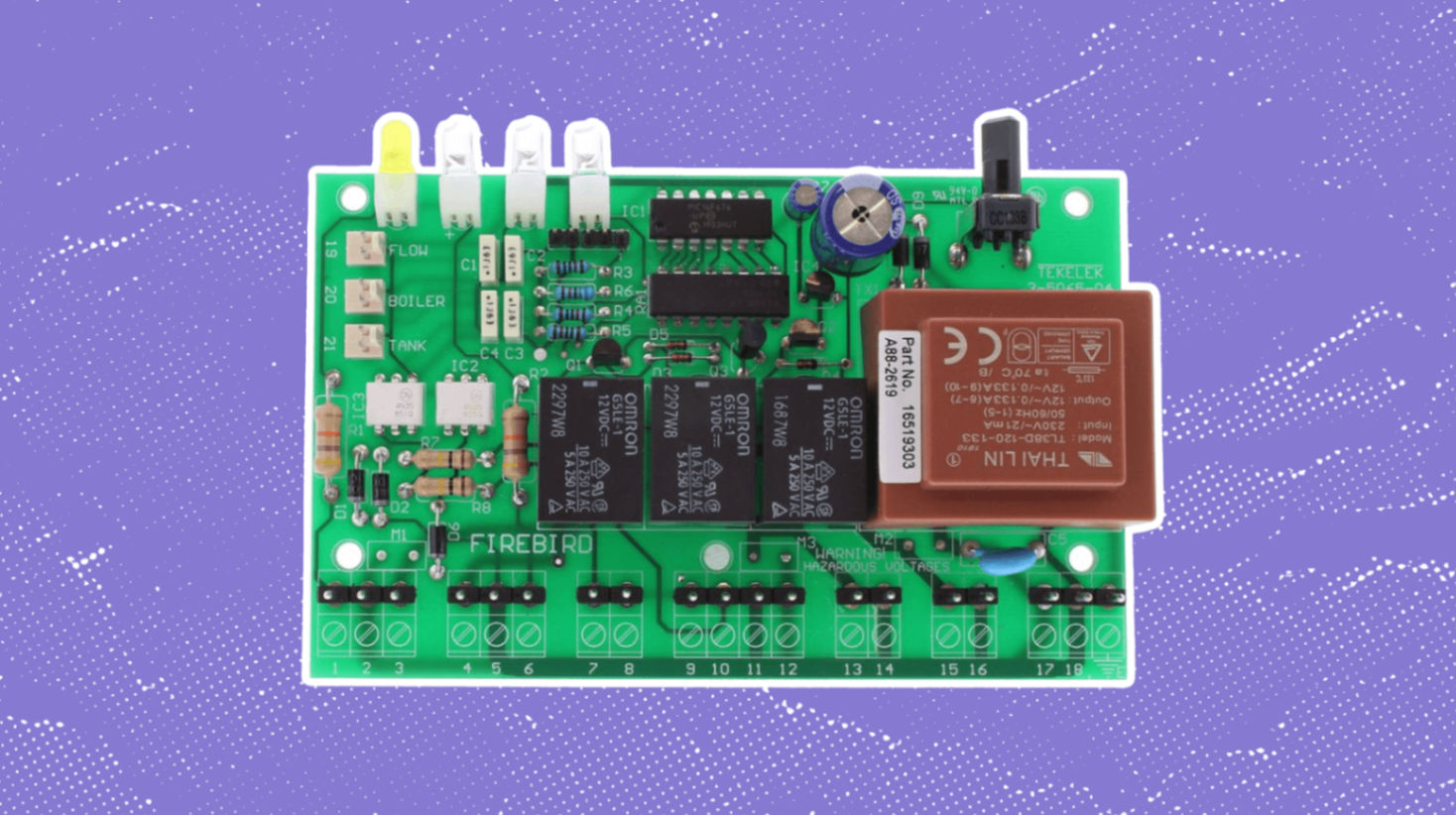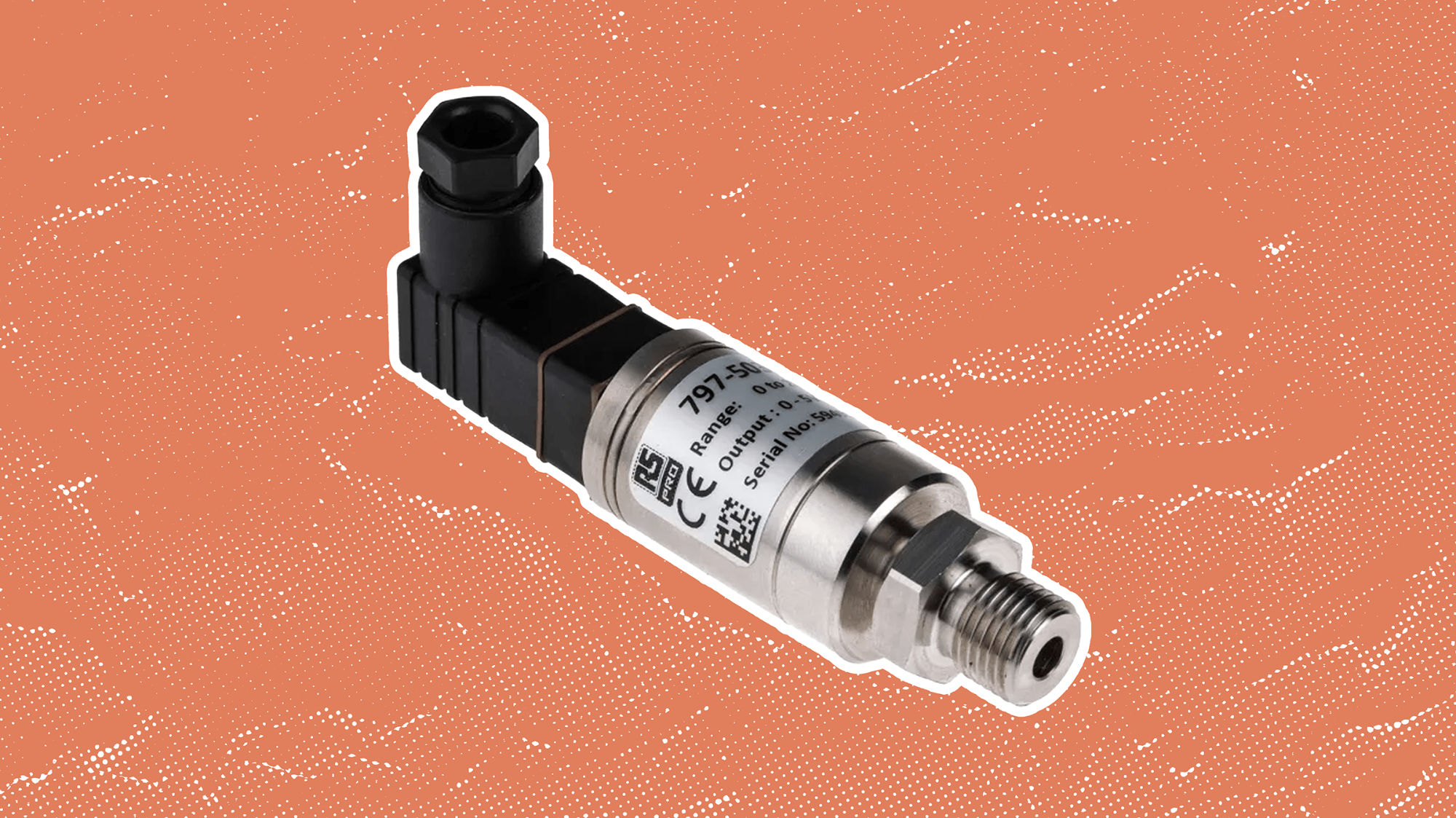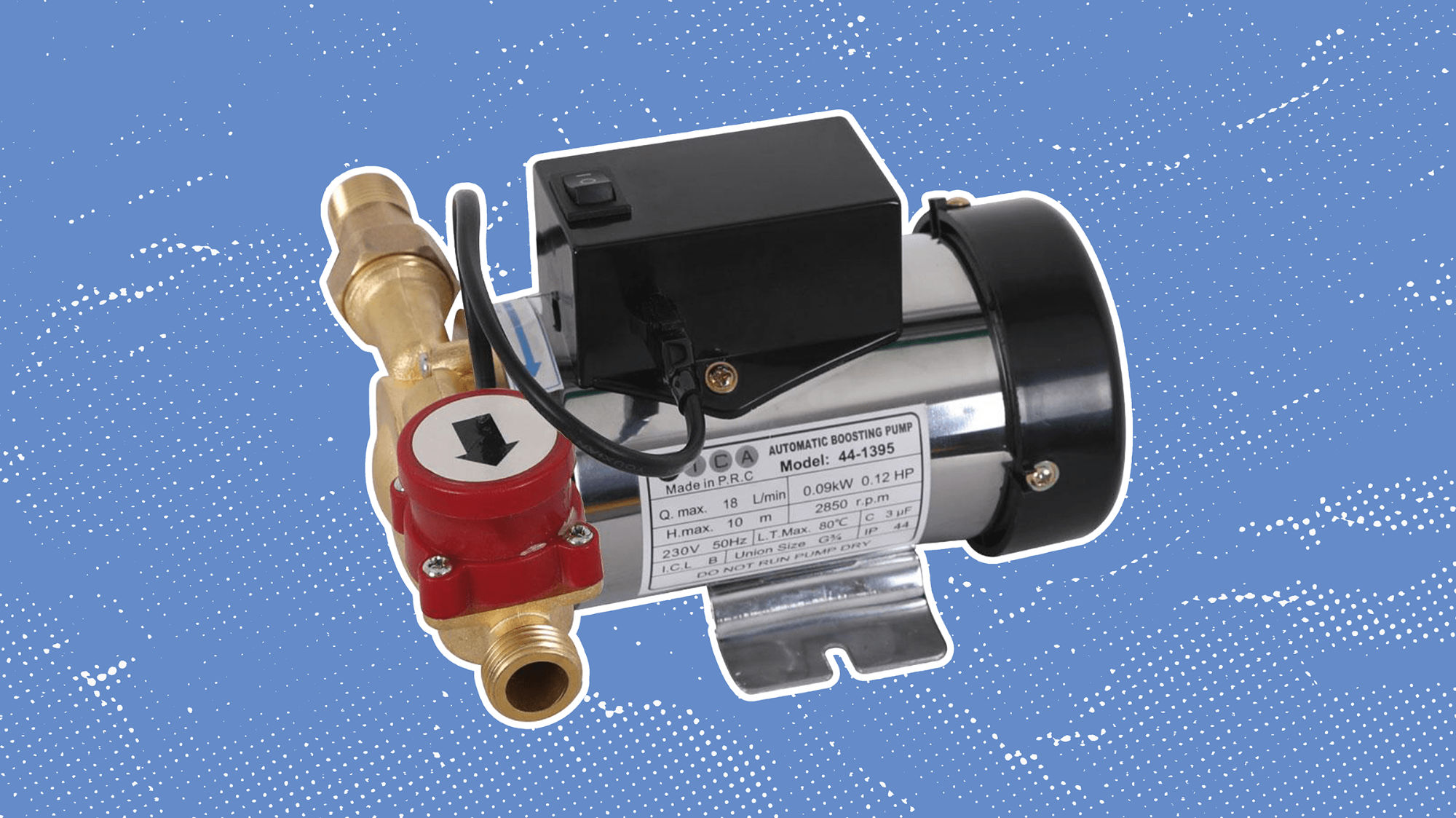Is your Glow Worm boiler displaying the F75 fault code? Uh oh. We know how to fix it.
If you find that your Glow Worm boiler isn’t working and that it’s displaying a fault code, there’s no need to panic!
Fault codes are generally not a sign that your boiler is on its last legs.
What’s more, in some cases a Glow Worm fault code can even be solved DIY.
But what exactly is the Glow Worm F75 fault code? What can cause this fault code?
And what are the solutions and can any of the fixes be undertaken DIY?
Let’s take a closer look!
Key Points:
F75 Fault: Indicates issues with water pressure detection, often due to a faulty pump or pressure sensor.
Common causes include pump failure, pressure sensor problems, or air in the system.
Start by checking the water pressure, and try resetting the boiler, but you may need a Gas Safe engineer to fix the issue.
PS. We fit new combi boilers with gas installation nationwide. Simply answer these questions, get your fixed price and you could get it installed as quick as tomorrow.
What Does the Glow Worm F75 Fault Code Mean?
The Glow-worm F75 error indicates that the boiler’s pressure sensor has malfunctioned.
The pressure sensor’s role is to monitor the water pressure as it flows through the system. This sensor relays information to the boiler’s PCB (printed circuit board), which acts as the boiler’s control centre.
The PCB ensures the boiler operates safely and efficiently. If it detects any irregularities, it takes action to protect both the user and the boiler.
Water pressure refers to the force at which water moves through the pipes, influenced by the volume of water, which in turn affects the flow speed.
The PCB uses data from the pressure sensor to maintain a safe water pressure level, typically between 1 and 2 bar. A slight increase in pressure when the water is heated is normal and considered safe by the PCB.
Image below showing a PCB:

If the water volume entering the boiler is inappropriate, it can be hazardous. For example, if the boiler continues to burn fuel at a normal rate despite low or high water volume, it could cause components to overheat, posing a safety risk.
Therefore, if the PCB cannot verify the water pressure due to a faulty sensor, it will lock out the boiler to prevent potential dangers, displaying the F75 fault code.
What May Cause a Fault with the Glow Worm F75 Error?
There are four primary reasons why an F75 fault might occur.
While a faulty pressure sensor is an obvious explanation, other issues can arise which can trigger the same error.
These are some of the most common causes:
The Pressure Sensor is Faulty
First and foremost, if your Glow Worm boiler is displaying an F75 error code, more than likely it’s because the pressure sensor is faulty.

If an electrical fault occurs in the pressure sensor, the sensor may stop working, triggering an F75 fault.
One sign of a faulty pressure sensor (which you may notice before a PCB triggers a lockout) is that as the heating process begins, the pressure reading on your boiler’s pressure gauge does not increase.
With that said, if your Glow Worm boiler’s PCB is working as it should be, then the fault should occur before you can even notice this problem independent of the F75 error appearing.
Blockage in the Pressure Sensor
It’s not extremely difficult to imagine a pressure sensor becoming blocked.
This is because the sensor has a tiny opening that tiny pieces of debris can fit into.
As a result, it’s not unfeasible that a blockage may occur.
Tiny pieces of heating sludge are most likely culprits should this occur.
The slide is the result of a mix of rust and debris that forms in the pipework over time.
Little pieces of this sludge could make their way into the pressure sensor, blocking it and ultimately causing an F75 fault.
Low Water Pressure
While less likely, the F75 error you are seeing may be the result of low water pressure.
With that said, even if water pressure is to blame, it’s more likely to occur alongside a faulty pressure sensor than being the only reason for the error.
It’s important to note that the water pressure of boilers generally drops slowly over time.
Therefore, while low water pressure may be a sign of another issue (e.g., a boiler leak, system leak or a faulty component), this won’t necessarily be the case.
Problem with the Heat Pump
Lastly, it’s possible that a faulty heat pump is to blame.

Since an F75 error relates to water circulation, it may be the case that the heat pump is not doing its job properly and thus the PCB cannot confirm that the water pressure is flowing as it should be.
Signs of a faulty heat pump include:
As you hear your boiler powering up, you notice a vibrating sound.
You may also notice strange sounds such as a ‘clanging’ noise.
Should one or more components of your heat pump become stuck (e.g., the shaft or bearings), this can cause the heat pump to stop working. However, that isn’t the only reason.
Some other potential reasons for a faulty heat pump are:
Sludge is causing a block which in turn leads to airlocks, inevitably resulting in a fault.
In the case of an older pump, the bearings may have simply worn down to the point of failure.
Alternatively, if you have a modern heat pump and it was either recently installed or recently fixed, it’s possible that the speed settings are incorrect.
You may be interested in Gas Engineer Allen Hart explaining the most common boiler problems and how you can resolve them in the video below:
Can I Fix an F75 Fault DIY?
In many cases, it is not possible to safely and legally fix a boiler fault code DIY.
However, there are two things you may want to try by yourself if you notice an F75 error before hiring a professional.
For starters, you can try simply resetting your boiler. However, if you notice that your boiler has low water pressure, then another fix will be required.
Beyond that, it is not legal nor safe to attempt any other potential fixes by yourself (e.g. repairing a faulty pressure sensor or replacing a heat pump).
In those other cases, you must hire a qualified heating engineer.
However, getting back to reset your boiler, if you’d like to try this, you should give the following steps a go:
Press and hold down your Glow Worm boiler’s power button for a total of 5 seconds.
You should then notice a cross-like symbol flash on the screen before the boiler will restart itself.
Once the boiler restarted, you can check to see whether or not the fault code has disappeared. If it is, you’ll want to then confirm that the boiler is working as normal. If it is, that’s great! If not, you’ll need to call out an engineer.
As for the case of low water pressure, you can attempt to fix this DIY by following the steps laid out in our ‘Boiler losing pressure?’ guide.
While you can follow our advice, you should always verify with Glow Worm’s official instructions.
Only undertake this work if you feel sure that you know exactly what is involved and have no doubts.
Please note that repressuring your boiler may only prove a temporary fix if there is an underlying cause such as a leak in the system.
Join Thousands of Satisfied Customers:
We’re proud to be Which? Trusted Traders with over 10,000 glowing reviews on Trustpilot. Check out our Reviews and Testimonials page and watch Adrian’s video testimonial below to see why so many trust us for their heating needs.
Cost of Hiring a Heating Engineer to Fix a Glow Worm F75 Fault Code
The labour cost of hiring a heating engineer in the UK stands at around £30 to £60 per hour.
In some cases, labour will be the only component of your bill, however, where supply costs apply, you’ll need to factor this into the total.
It’s also important to note that labour costs differ throughout the UK, hence why the higher end of the hourly range is twice as much as the lower end.
On the one hand, labour costs tend to be particularly high in the southeast of England (especially in regions like London), while prices are generally under the UK average in areas like the north of England, Scotland and Northern Ireland.
Here are the average costs of hiring an engineer to fix a Glow Worm F75 fault:
Topping up your boiler’s water pressure - £30 to £60
Replacing a broken pressure sensor - £55 to £175
Fixing a blocked pressure sensor - £30 to £120
Replacing a boiler pump - £230 to £420
Fixing an incorrectly installed boiler pump - £30 to £120
Fixing a boiler leak - £60 to £240
Fixing a water leak within your heating system - £60 to £240
Replacing a boiler * - £800 to £1,800
*While unlikely, it’s possible that your entire boiler is beyond economic repair and the F75 fault code is representative of the straw that broke the camel’s back. In this case, you’d need to have a new boiler installed. Obviously having a boiler replaced does not come cheap, however, it is possible to purchase a boiler on finance. If eligible, a suitable plan would allow you to spread out the cost over many years.
Looking for the best deal on a new combi boiler?
If you’re aiming to get the best deal on a new boiler, consider getting a quote from us, here’s why:
Gas Safe installation within 24 hours.
Thousands of satisfied customers with an average score of 4.9 on Trustpilot, surpassing the market leader.
Which? Trusted Trader: Heatable is proudly recognised as a Which? Trusted Trader.
Price match guarantee: We will match any like-for-like cheaper quote.
Flexible payment options, including interest-free finance.
Up to 12-year guarantee on selected boilers.
Fixed price guarantee: No hidden costs.
Save your quote and decide later.
Get an instant fixed price on a new boiler, here.
To learn more about boilers, visit our advice section, check out our YouTube channel, or read customer testimonials here.
Heat Happy.





